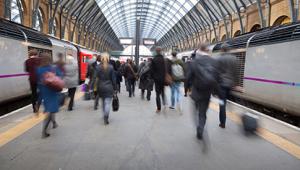06 February 2009
By Alex Klaushofer
Rail bosses have defended themselves against accusations of making excessive profits in the wake of January's above-inflation fare increases.
On February 4, Louise Ellman, the chair of the Commons transport select committee, asked rail chiefs to justify fare increases of six or seven times the rate of inflation. These were fuelling a perception that rail companies were 'fleecing the public', she said.
But Virgin's commercial director, Graham Leech, told the MPs: 'I believe the sort of increases that we've made can be justified because they reflect the fact that there is a better, faster service on the West Coast Main Line. The average price is less than if they were travelling this time last year.'
But Leech said one particular fare hike – the journey from Carlisle to Birmingham, up from £71 to £124 – would now be reviewed. 'With hindsight, in that particular case we think it's right to make some changes,' he said.
Asked what level of rises passengers could expect in future, the Association of Train Operating Companies' commercial director, David Mapp, gave a figure of 6%.
MPs cited accusations by the RMT union that rail companies have been profiteering, using public subsidy and fare hikes to pay dividends to shareholders.
'We do not make excessive profits,' said Mapp. 'We bring considerably more value with the increases than the cost of those profits.' He said that, taken together, rail companies' profits stood at 3% of costs or 5% of sales.
The representatives of the five rail companies present declined to give individual figures, except Southeastern, which said it had made £27m in 2007/08.
PFfeb2009



















